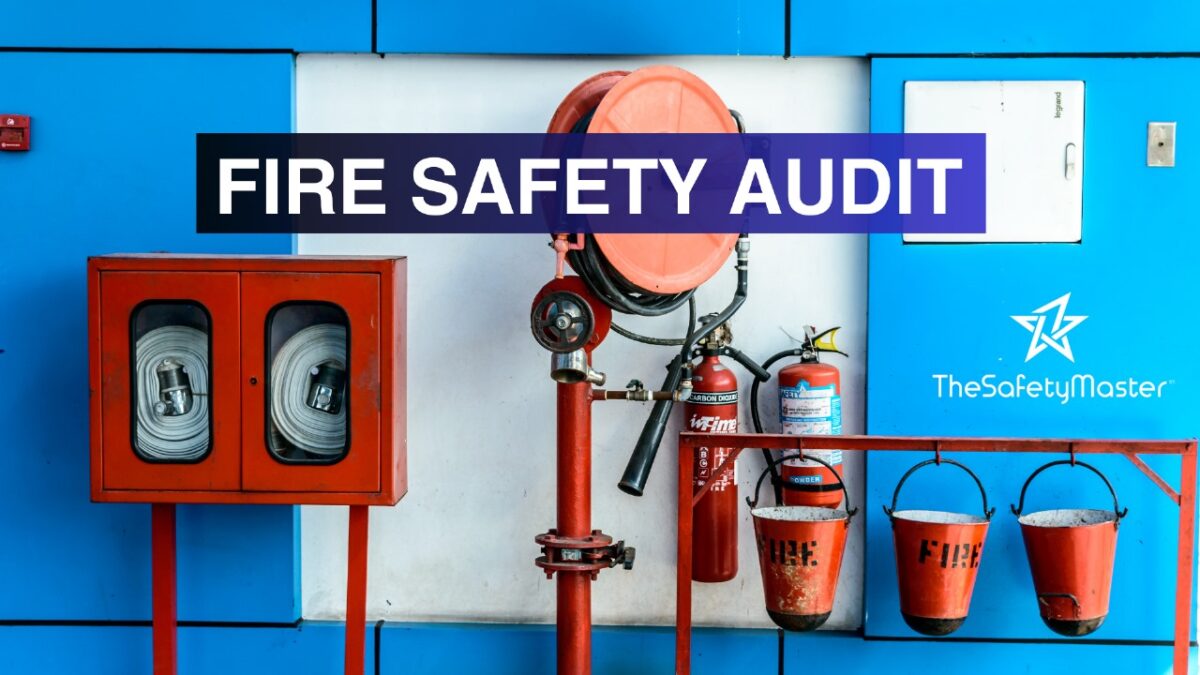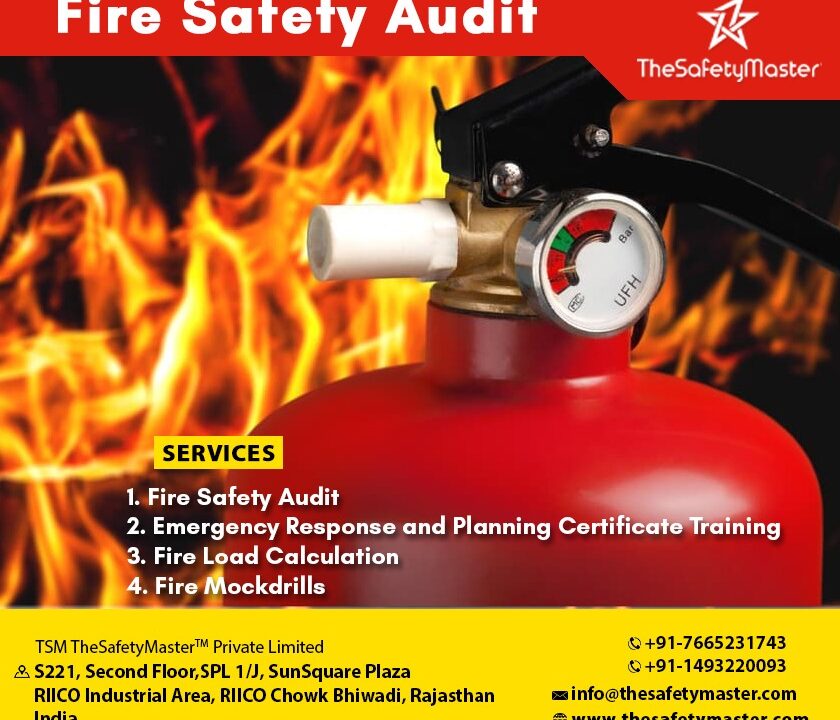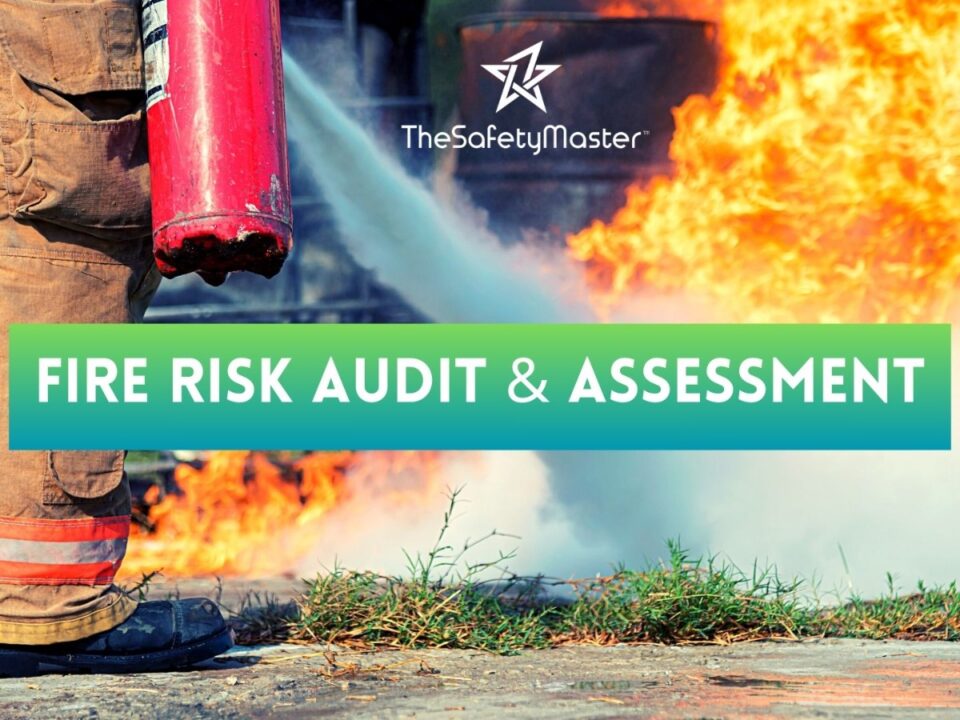How Can Fire Audits Enhance Emergency Preparedness Beyond Compliance?

Fire Safety Audit: The Role of Technology in Modern Fire Safety Audits
January 18, 2025
Electrical Hazards and Safety: Types, Dangers, and Examples
January 21, 2025In today’s ever-evolving industrial and commercial environments, the importance of fire safety cannot be overstated. While adhering to fire safety regulations is a mandatory requirement, many organizations often overlook the broader implications of these regulations. Fire audits, traditionally viewed as mere compliance exercises, can serve as powerful tools for enhancing overall emergency preparedness. At The Safety Master, we believe that leveraging fire audits beyond compliance is a crucial step in building a safer and more resilient workplace.
What Are Fire Audits, and Why Are They Important?
Fire audits are systematic evaluations of fire safety measures within an organization. They aim to identify potential hazards, assess the adequacy of existing safety systems, and ensure compliance with relevant regulations. But why stop at compliance? Fire audits can offer much more than just ticking off regulatory boxes.
- Identifying Hidden Risks: While regulatory compliance ensures that basic safety standards are met, it may not address all potential risks specific to your organization. A thorough fire audit goes beyond the obvious and identifies hidden risks that might not be covered by standard regulations. These could include risks associated with unique processes, materials, or equipment in your facility.
- Improving Response Plans: Fire audits provide valuable insights into the effectiveness of your emergency response plans. By evaluating your current procedures, you can identify weaknesses and areas for improvement. This allows you to refine your response strategies, ensuring that your team is better prepared to handle emergencies.
- Enhancing Employee Training: A comprehensive fire audit highlights the need for ongoing training and drills. Beyond compliance, regular training ensures that employees are not only aware of safety protocols but are also confident in their ability to respond effectively during an emergency. This proactive approach fosters a culture of safety within the organization.
- Optimizing Resource Allocation: Fire audits can help you allocate resources more effectively. By identifying areas of vulnerability, you can prioritize investments in safety equipment, fire suppression systems, and other critical resources. This ensures that your organization is well-prepared to handle potential fire emergencies.
- Promoting Continuous Improvement: Fire audits are not a one-time activity. By conducting regular audits, you can track progress, measure the effectiveness of implemented measures, and continuously improve your fire safety strategies. This commitment to ongoing improvement ensures that your organization remains resilient in the face of evolving risks.
How Can Organizations Navigate Regulatory Compliance in Fire Safety?
Navigating regulatory compliance in fire safety can be a complex and challenging task. Different industries, regions, and governing bodies may have varying requirements, making it difficult to ensure full compliance. However, at The Safety Master, we believe that a strategic approach can simplify this process and ensure that your organization meets all necessary regulations.
- Understanding Regulatory Requirements: The first step in navigating regulatory compliance is understanding the specific requirements that apply to your industry and location. This includes national fire codes, local regulations, and industry-specific standards. It’s essential to stay up-to-date with any changes or updates to these regulations to ensure ongoing compliance.
- Engaging with Regulatory Authorities: Building positive relationships with regulatory authorities can be beneficial in navigating compliance challenges. Engaging with fire safety inspectors, code officials, and other relevant authorities can provide valuable insights into their expectations and requirements. This proactive approach can also help address any concerns or discrepancies before they become compliance issues.
- Conducting Regular Compliance Audits: Regular compliance audits are essential for identifying any gaps or deficiencies in your fire safety measures. These audits should be conducted by qualified professionals who are familiar with the specific regulations applicable to your organization. By addressing any non-compliance issues promptly, you can avoid potential penalties and ensure the safety of your facility.
- Integrating Compliance into Organizational Culture: Compliance should not be viewed as a burden but as an integral part of your organization’s culture. By promoting a culture of compliance, you can ensure that fire safety is prioritized at all levels of the organization. This includes educating employees about the importance of compliance, encouraging them to report safety concerns, and rewarding proactive safety behaviors.
- Leveraging Technology for Compliance: Technology can play a significant role in simplifying compliance efforts. Fire safety management software, for example, can help track inspections, maintenance schedules, and compliance documentation. By automating these processes, you can reduce the risk of human error and ensure that all necessary tasks are completed on time.
- Collaborating with Experts: Partnering with fire safety experts, such as The Safety Master, can provide your organization with the expertise and guidance needed to navigate complex regulatory requirements. Our team of experienced professionals can help you develop and implement comprehensive fire safety strategies that go beyond compliance, ensuring the safety of your facility and employees.
Why Is Going Beyond Compliance Essential for Long-Term Safety?
Compliance is often seen as a minimum standard—a baseline that organizations must meet to avoid penalties. However, the ever-changing nature of risks in today’s world means that relying solely on compliance is not enough. By leveraging fire audits and other safety measures, organizations can take a proactive approach to risk management.
- Adapting to Changing Risks: The risks associated with fire safety are constantly evolving. Changes in technology, processes, and materials can introduce new hazards that may not be covered by existing regulations. By going beyond compliance, organizations can stay ahead of these changes and adapt their safety measures accordingly.
- Protecting Reputation and Stakeholders: A fire incident can have far-reaching consequences, including damage to your organization’s reputation and loss of stakeholder trust. By taking a proactive approach to fire safety, you can protect your reputation and demonstrate your commitment to the safety of your employees, customers, and the community.
- Ensuring Business Continuity: Fire incidents can disrupt operations, leading to costly downtime and financial losses. Beyond compliance, fire audits can help identify potential vulnerabilities and develop contingency plans to ensure business continuity in the event of an emergency.
- Reducing Liability: Compliance with regulations reduces legal liability, but it doesn’t eliminate it entirely. In the event of a fire, organizations may still face lawsuits or other legal actions if it is determined that they did not take adequate precautions. By going beyond compliance, you can reduce your liability and protect your organization from potential legal consequences.
- Fostering a Culture of Safety: Beyond compliance, fire audits and safety measures foster a culture of safety within your organization. When safety is ingrained in the culture, employees are more likely to take ownership of their roles in maintaining a safe environment. This collective responsibility enhances overall emergency preparedness and reduces the likelihood of incidents.
How Can The Safety Master Help You Achieve Excellence in Fire Safety?
At The Safety Master, we are committed to helping organizations achieve excellence in fire safety. Our team of experts can assist you in conducting comprehensive fire audits, developing customized safety strategies, and navigating regulatory compliance. We believe that fire safety is not just about meeting minimum standards but about creating a safer and more resilient organization.
Our approach goes beyond compliance, focusing on identifying hidden risks, optimizing resources, and fostering a culture of continuous improvement. By partnering with us, you can ensure that your organization is well-prepared to handle any fire-related emergencies and that your employees are equipped with the knowledge and skills needed to respond effectively.
In conclusion, fire audits are a powerful tool that, when leveraged correctly, can enhance overall emergency preparedness and protect your organization from potential risks. By going beyond compliance and adopting a proactive approach to fire safety, you can ensure the long-term safety and success of your organization. At The Safety Master, we are here to support you every step of the way in your journey toward excellence in fire safety.



